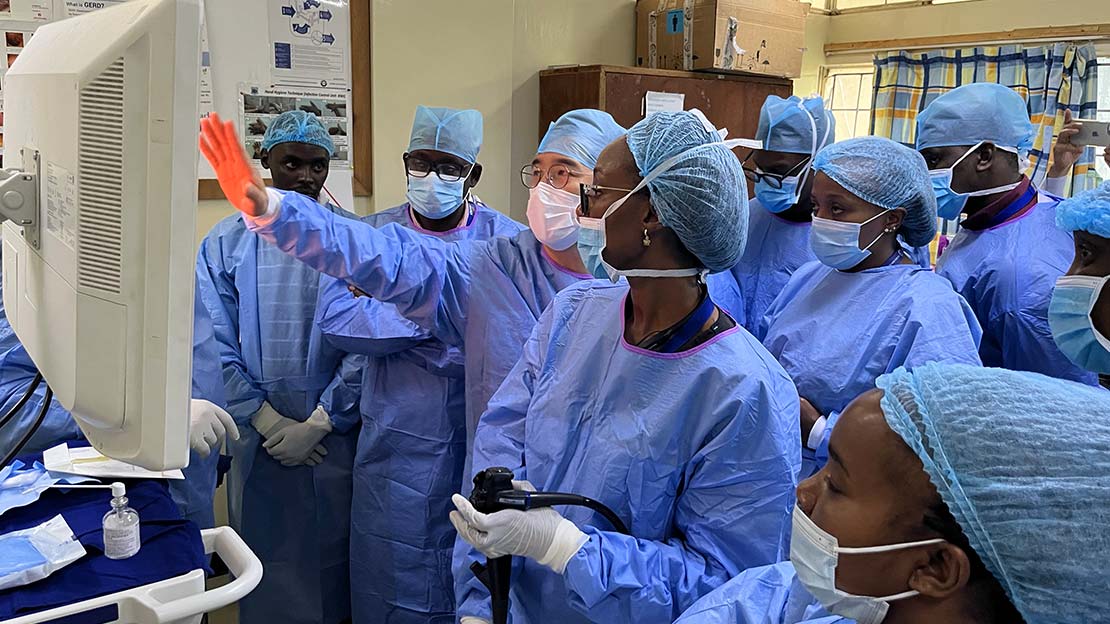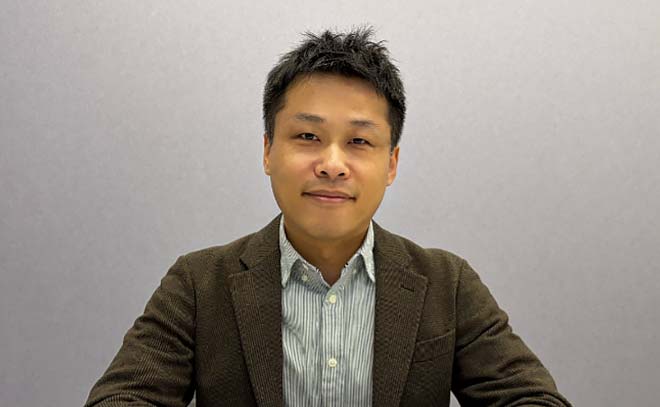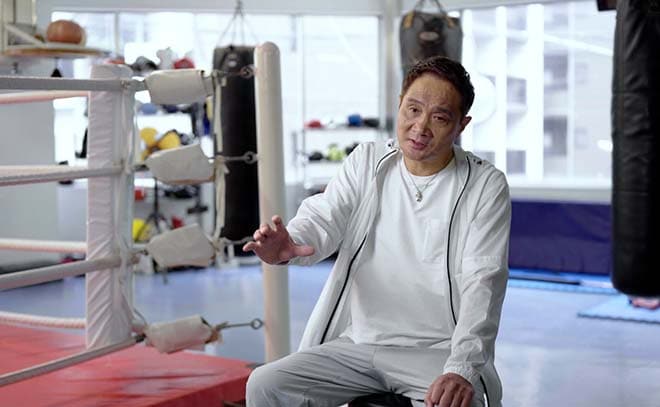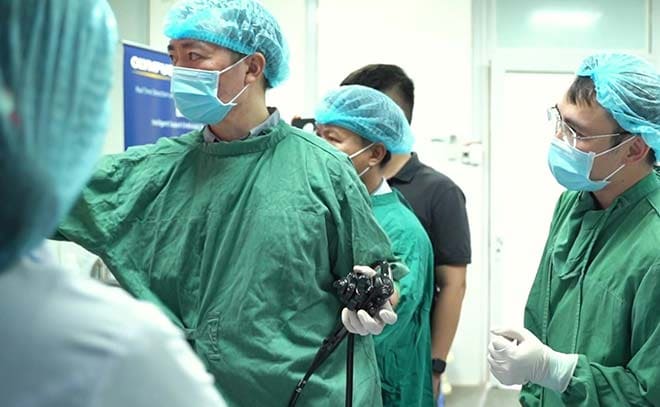"Japan is the land of endoscopy, and there couldn’t be a better opportunity to learn from the best of the best," says a Kenyan doctor who received training in Japan. Olympus is coordinating a training project for endoscopy physicians in Kenya, in collaboration with the Japanese government and medical institutions.
Kenya faces shortage of endoscopy-trained physicians
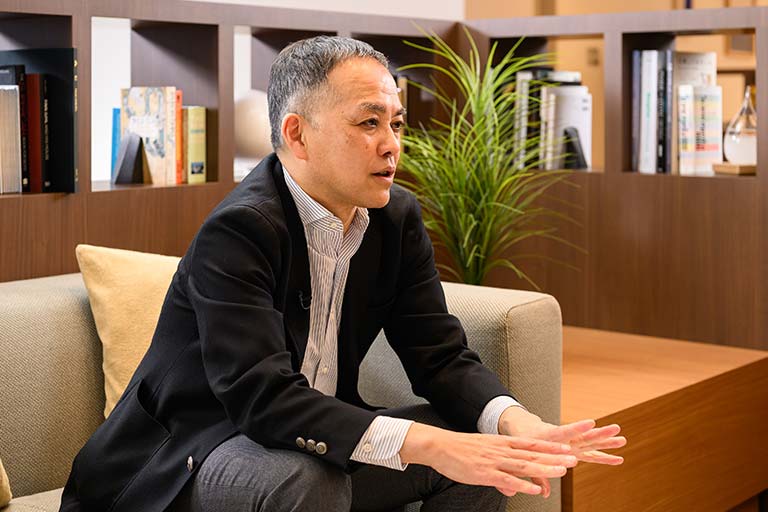
Located in the eastern part, Kenya is one of the most rapidly developing countries in Africa. Along with that growth, there has been a rise in gastrointestinal cancer. Yet endoscopic examinations remain uncommon in Kenya due to a shortage of equipment and trained professionals. " In Japan, technology enabling the early detection and early treatment of cancer is becoming widespread. While Kenya is still in the process of development, with an increasing number of people being diagnosed with cancer, there is a growing need for doctors to have opportunities to acquire such skills and knowledge." points out Koichiro Watanabe from Olympus' Government Affairs International Cooperation Division.
To address these challenges, Olympus has launched an international medical cooperation project with the support of the Japanese government. This three-year project, which began in 2023, focuses on providing endoscopy training to Kenyan doctors. Olympus is responsible for the overall planning, operation, and coordination of the training. Employees in Tokyo and on-site in Kenya are working together to provide ongoing support. "Kenya is a rapidly developing country in Africa. When I visited there, I could truly feel its growth. However, as living standards improve, the proportion of non-communicable diseases like cancer is increasing. Given the high incidence rates of esophageal and colorectal cancers, we recognized a significant need to support training for endoscopy specialists," says Watanabe.
Training in Kenya and Japan, finding hope for the future
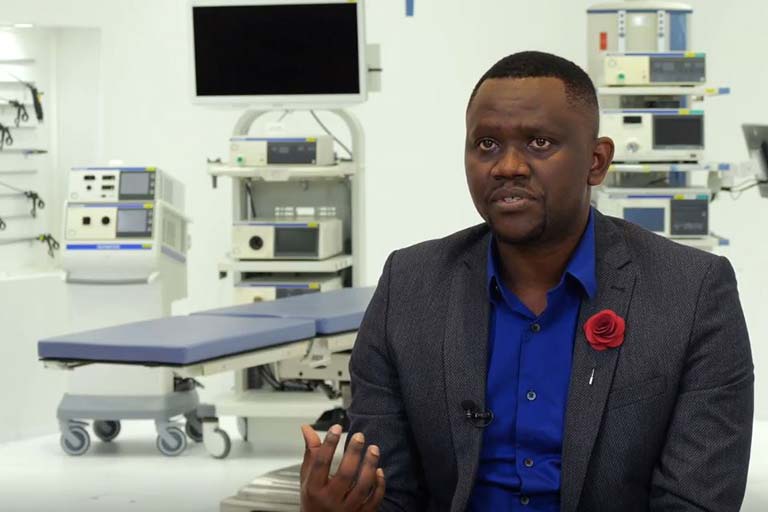
In this project, Olympus collaborates with Kyushu University Hospital's International Medical Department to provide technical training on endoscopy to doctors from hospitals across Kenya.
First, online lectures were conducted on the latest developments in Japanese endoscopic diagnosis. Later, Japanese doctors traveled to hospitals in Nairobi, the capital of Kenya, to provide lectures and clinical guidance locally. That included practical instruction on upper and lower gastrointestinal endoscopic examinations, teaching basic diagnostic techniques and how to operate the endoscope. Following this, the Kenyan doctors traveled to Japan and received approximately three weeks of training at Kyushu University Hospital. There, they observed various endoscopic examinations and treatments, and received technical instructions, including hands-on practice with simulator models. Throughout this training, they worked diligently to acquire practical knowledge and skills.
Dr. Brandon Oduor, one of the Kenyan doctors who participated in the training, explained what he gained from this experience: "What endoscopy is, how important it is in terms of diagnosis and therapeutics. This would be a great opportunity to transfer the skills and knowledge that I learned here to our colleagues back at home."
For the Kenyan doctors, seeing Japanese medical practices firsthand was a valuable experience. "In Kenya, even among doctors, there's still a widespread belief that detecting cancer early is very difficult. But seeing Japanese doctors identify cancer at such early stages gave them hope—they started to believe that they could do this in Kenya too," says Watanabe.
Experiencing Japan's "Team Medicine" approach
Dr. Oduor joined the training with a strong desire "to expand endoscopic capacity and improve the quality of care for our patients." Like him, the other Kenyan doctors also participated with a remarkably positive attitude.
What particularly struck them during their training was the comprehensive "team medicine" approach in Japanese medical institutions. Seeing how doctors and medical staff work together as a cohesive team, moving efficiently within well-defined processes, they were impressed by "the wonderful collaboration between doctors across specialties and the cooperation between doctors and medical staff."
"Kenya still faces a shortage of healthcare professionals, making it difficult to form advanced medical teams like those in Japan," explains Watanabe. "However, the training helped them realize the importance of this approach. Afterwards, some doctors strongly expressed their desire to take the lead in improving healthcare in their own country."
A shared passion for learning across borders
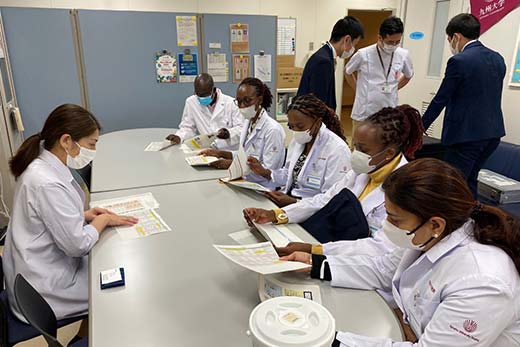
The impact of the training is already visible. "One doctor reported that he was able to detect early-stage cancer using the techniques he learned during the program. Hearing that was incredibly rewarding," recalls Watanabe. Watanabe also mentions that one of the Kenyan doctors he became close with showed remarkable enthusiasm, even expressing a desire to "study medical books written in Japanese."
Kenya and Japan have vastly different medical environments, but "the passion of healthcare professionals to acquire knowledge and techniques is common across all countries," adds Watanabe. "Even with different countries and cultures, everyone shares the same passion for helping patients. I believe it's important to continue these activities for a long time, exploring how far we can go together while understanding our differences."
※ This project is part of a 2024 initiative commissioned by Japan’s Ministry of Health, Labour and Welfare, and carried out by the National Center for Global Health and Medicine.
※ This story is based on interviews conducted in February 2025. The conditions, feelings and treatment of each patient may vary from person to person. Please consult your doctor for your diagnosis and treatment.



